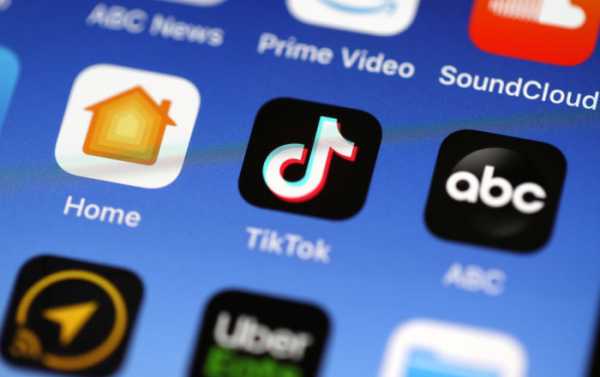
The short-form video-sharing app TikTok was the second most downloaded app of 2019 and since the start of the lockdown usage has grown exponentially. Mainstream media outlets are jumping on board but some critics say the app is turning a blind eye to “racist” content because it is popular.
Every cloud has a silver lining and for the Chinese-owned app TikTok the coronavirus outbreak and the lockdown it triggered around the world has been that cloud.
Data analysts Sensor Tower say TikTok has been downloaded by two billion people – 500 million of them in 2020 – with China and India leading the way.
Naomi Watson, a teacher from London, said she had never heard of TikTok until March but had been using it daily since the lockdown began.
She said: “I like the funny videos the most but there are also useful hair tips and cooking tips and also some very uplifting videos and ones with positive messages.”
But concerns have been expressed about some of the content which is being posted on TikTok, which is owned by the Beijing-based ByteDance.
Last month two US students were expelled from a high school in Georgia after posting a racist clip on Tik-Tok, which then went viral on Twitter, and on Sunday, 17 May, India’s National Commission for Women called for the government in Delhi to ban the app after videos praising rape and acid attacks appeared on it.
Ms Watson said “blatantly racist” videos were mixed with more subtle content which played on prejudices about skin colour and racial stereotypes.
Ms Watson said she did not know how TikTok’s algorithms worked but added: “I assume the ones that pop up on my feed are popular. Lots of them have thousands of likes and comments, often from trolls.”
The popularity of the app has led even the snootiest of mainstream media operators – the Washington Post – to seek to cash in on the phenomena.
The post has its own TikTok correspondent, Dave Jorgenson, who has been documenting life in his apartment by posting short, comic videos.
The Post’s managing editor for digital, Emilio Garcia-Ruiz, told the Press Gazette: “There’s nothing more fun than what Dave is doing on TikTok. Into what many people think of as a stuffy, traditional newsroom, we really wanted to build a sense of experimentation. We want our content to be distributed successfully on as many platforms as possible.”
The Post was sold to Amazon founder Jeff Bezos in 2013 and has been trying to upgrade its image to appeal to millennials.
Scandals Surrounding Tik Tok
The app has courted controversy for several months.
In March two Republican senators introduced a bill in an attempt to ban federal government employees from installing the app on their phones amid fears over data being passed to China.
Last month TikTok removed sexy video content from 49-year-old Australian model Gina Stewart – “the world’s hottest gran” – posted on the app.
But Insider reported last week on how white TikTok users were posting pictures with black men called the “snow bunny challenge” and other users were mimicking black and Latin women stereotypes in a “ghetto girl” challenge.
On Saturday, 16 May, there was more controversy as it emerged that people were mocking people with disabilities in an “autism challenge” on TikTok.
Ms Watson said TikTok needs to do much more to remove overtly racist and offensive content.
A TikTok spokesperson told Sputnik: “TikTok is a platform for positive, creative expression, and keeping our community safe is a top priority. Our community guidelines make it clear what is not acceptable on our platform, and we use a combination of technologies and human moderation teams to identify, review and remove any content or account that breaks these guidelines.”
Sourse: sputniknews.com






